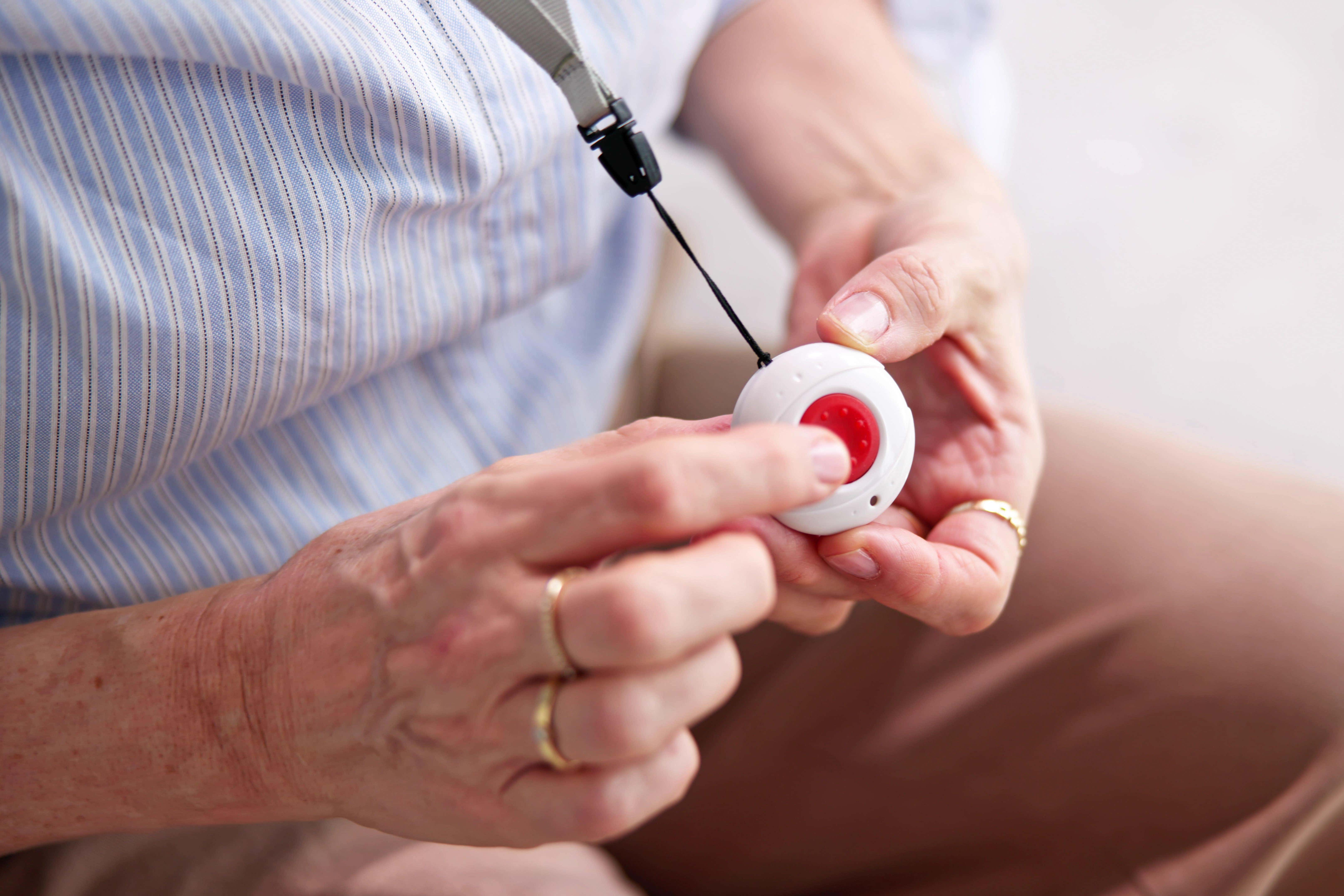Telecoms firms agree digital landline migration pause amid safety alarm concerns
Personal ‘telecare’ alarms automatically call a response centre when pressed through the wearer’s landline

BT and other telecoms providers have agreed to pause forcing customers onto the new digital phone network following a number of “serious incidents” involving the failure of personal “telecare” alarms.
Technology Secretary Michelle Donelan called a meeting with the leading telecoms firms including Sky, BT, Virgin Media 02 and TalkTalk following incidents when telecare devices – personal alarms used by an estimated 1.8 million elderly and vulnerable people and designed to be activated in a health emergency or after a fall – failed because of digital landlines.
The alarm buttons, which are usually worn around the neck or on the wrist, automatically call a response centre when pressed through the wearer’s landline. Operators can then check if a person needs help and send someone if necessary.
The recent issues families have had to endure are unacceptable and today’s agreements will help to protect consumers in future
While telecare systems do work with digital landlines, a power cut or internet drop-out can cause them to fail.
Copper phone lines typically continue to work even during power cuts.
On Monday, Ms Donelan said the firms had agreed a number of new measures to protect vulnerable customers as phone lines were upgraded to a new digital network.
She said: “It is absolutely right that the most vulnerable people in our society should feel safe, secure and have complete confidence in the services provided to them. That’s why I have brought our biggest network providers and industry regulator to the table, agreeing a cast-iron set of principles to reassure people and put their minds at ease.
“The recent issues families have had to endure are unacceptable and today’s agreements will help to protect consumers in future.”
Providers have agreed to carry out extra checks on those who have already been forcibly migrated to ensure they do not have telecare devices the provider was unaware of, and if they do, to ensure suitable support is provided.
No telecare users will be migrated to digital landline services without the provider, customer, or telecare company confirming they have a compatible and functioning telecare solution in place.
Providers will also be required to provide back-up solutions that go beyond Ofcom’s minimum of one hour of continued, uninterrupted access to emergency services in the event of a power outage.
The telecoms industry, including BT, has agreed that the right thing to do is to temporarily pause all non-voluntary, managed migrations to a digital landline where there is any risk that a customer's telecare service will not continue to work
Telecoms minister Sir John Whittingdale said: ”These commitments are a promise to the most vulnerable people in our society – we will leave no stone unturned in making your safety and security the number one priority for our telephone providers.
“When people need help, they should have every confidence that the services provided to them will get them the assistance they need, and I am clear that recent failings must never happen again.”
In November 2017, BT announced its intention to retire its analogue telephone networks such as the Public Switched Telephone Network (PSTN) by the end of 2025.
The industry will upgrade landline services to new digital technology using an internet connection, such as Voice over Internet Protocol (VoIP), Digital Voice or All-IP telephony.
On Monday, BT said in a blog: “Over the past week, we’ve been informed about incidents involving telecare users from another communications provider who had been switched to a digital landline.
“In light of this news, the telecoms industry, including BT, has agreed that the right thing to do is to temporarily pause all non-voluntary, managed migrations to a digital landline where there is any risk that a customer’s telecare service will not continue to work.
“As part of ensuring that the necessary steps are taken to support customers making the switch, we welcome the introduction by Government of an industry charter.
“We are fully supportive of the formation of this charter and efforts to encourage local authorities and telecare providers to work with the industry on information-sharing agreements, which will help us to identify telecare users before they switch.”
In line with the agreed commitments, we have paused switchovers as we review our processes to further support consumers, building on the range of measures that we already have in place
A Virgin Media spokesman said: “Essential work is taking place across the industry to safeguard voice networks for future.
“We welcome the continued discussion and collaboration with Government, Ofcom and industry stakeholders on this important issue and have agreed to a set of industry-wide commitments.
“As well as improving our own processes, we look forward to discussing in more detail how local authorities and telecare providers can better work with the industry to help identify and support those who are vulnerable or need additional assistance.
“In line with the agreed commitments, we have paused switchovers as we review our processes to further support consumers, building on the range of measures that we already have in place.”
Subscribe to Independent Premium to bookmark this article
Want to bookmark your favourite articles and stories to read or reference later? Start your Independent Premium subscription today.
